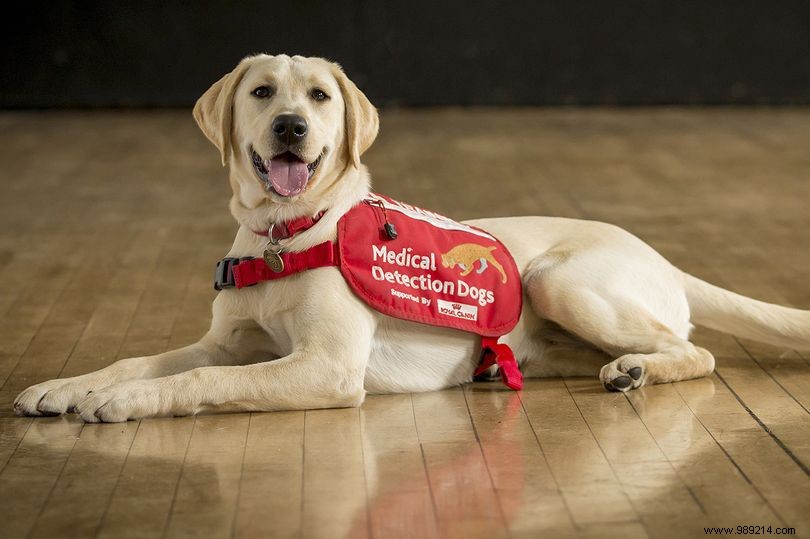Could dogs specially trained to detect Covid-19 help us fight the pandemic? Yes, but…
We know that some dogs, when trained, can detect the presence of cancers, while others can smell the "smell" of epileptic seizures or malaria . More recently, specially trained canids have also proven to be very effective at detecting yellow dragon disease, which is wreaking havoc in citrus crops.
So we might naturally wonder if our four-legged best friends could play a role in the fight against Covid-19.
This possibility is currently being investigated by researchers from the London School of Hygiene and Tropical Medicine (LSHTM) and the University of Durham (UK), in collaboration with the organization Medical Detection Dogs. In a press release published at the end of March and describing the experimental project, we learn that several dogs are currently brought to sniff the face masks of patients with Covid-19 . The goal:to determine if the disease gives off a unique "smell" that canines could identify.
It will take several weeks of experimentation before knowing whether or not dogs are able to identify the presence of the coronavirus. But if so, then they could be valuable allies in the fight against the pandemic. As Claire Guest, CEO of the Medical Detection Dogs association, reminds us, the best trained canines are indeed capable of sniffing up to 750 people per hour .
The researchers hope in particular that the animals will be used in airports at the end of the epidemic to prevent the disease from resurfacing. “These tests would be fast, effective, non-invasive, and it could ensure that our limited testing resources are used only when really needed », continues Claire Guest.

However, not everyone is convinced. Like Simon Gadbois, director of the Canid and Reptile Behavior and Olfaction Lab at Dalhousie University in Halifax, who has been studying the ability of dogs to identify several diseases for several years.
One of the main obstacles to this idea, which is very attractive on paper, remains, according to him, the cost of such operations. In the context of such a pandemic, it would indeed be necessary to be able to deploy a large number of dogs in the field. And each must be trained individually. Taking the temperature in airports is certainly not an effective test in all circumstances, but this solution remains, according to him, much more economical than the use of sniffer dogs .
Simon Gadbois also thinks that, whatever happens, we could not do without a diagnostic test based on the analysis of the RNA of the virus to whether or not to confirm the cases detected by the dogs.
Many researchers also have doubts about dogs' ability to sniff out suspicious good smells outside of clinical conditions. We invite you to read this excellent report from Québec Science on this subject.
Source